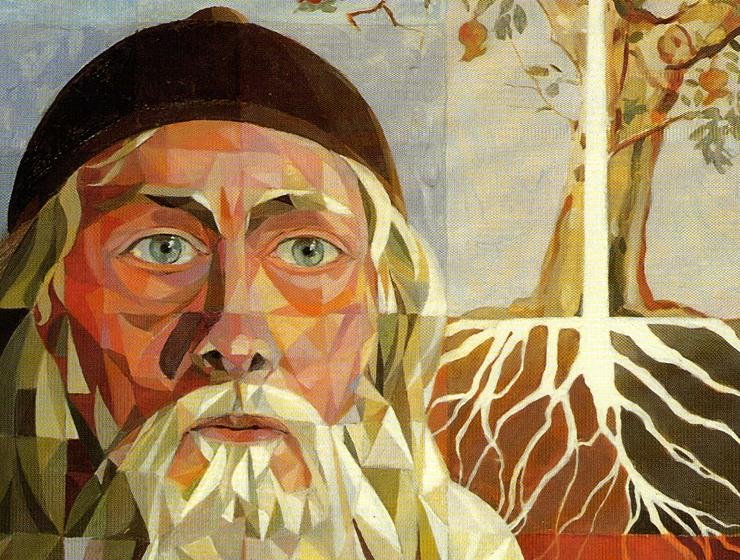
-Index-
Presentation
Jordi Pardo Pastor
Relations of power and juridical norms: the council decrees of Calahorra e La Calzada diocese’s under the bishop of D. Almoravid (1287-1300)
Marcelo Pereira Lima
Original title: Relações de poder e normas jurídicas: os decretos conciliares da diocese de Calahorra e La Calzada sob o bispado de D. Almoravid (1287-1300)
This paper speaks about the juridical discourses present in the sinodal decrets of Calahorra and La Calzada in the end of XIII th century. The objective of our work is to stress the relations between the episcopal institutions and their legislative practices. In the historical and political perspective, we have chosen a specific group of tematics: the clerical reformation and the question of their ordination; the sacramental life; the norms about the Jewish Communities; and, finally, the determinations about beneficial matter of the clergy.
Dialogue inter-religious ‘real or apparent’ during the Hispanic Middle Ages: Ramon Llull (1232-1316)
Jordi Pardo Pastor
Original title: Diálogo inter-religioso ‘real ou aparente’ durante a Idade Média hispânica: Ramon Llull (1232-1316)
This paper speaks about the dialogue between religions in the Middle Age. We’re taking historical methods and The Book of the Pagan and the three Wises of Ramon Llull for introducing the status quaestionis.
About the ‘artificial habits’ in the lullian anthropology and the men spiritual upbeat
José G. Higuera Rubio
Original title: Acerca de los “hábitos artificiales” en la antropología luliana y el ascenso espiritual del hombre
The concept of “habitus artificialis” in lullian anthropology involves the knowledge of the divines virtues -the nature’s secrets-, and it represents the spiritual way of human being. Similarly, some documents of medieval universities contain the natural knowledge and the transcendence of prime cause. Therefore the lullian though and the Student’s guides are the model of spiritual finality in the intellectual practice –liberal arts and Lullian Art- and that practice is defined like “habitus artificialis”.
Ramon Llull as an identitary myth
Josep E. Rubio
Original title: Ramon Llull com a mite identitari (més ençà de la Renaixença)
La argumentación filosófica del caballero medieval. El modelo e ideal luliano en el Libre del Orde de Cavaleria
Jorge Maíz Chacón
In this work, we analyze the influence of Ramón Llull's thought in the society of the moment. The Llibre de l’Ordre de Cavalleria is a good example. This shapes and subordinates the interpretation on the part of the medieval horsemen.
Quia nolunt dimittere credere pro credere, sed credere per intelligere: Ramon Llull and his Jewish Contemporaries
Harvey Hames
Unlike most of his contemporaries, Ramon Llull understood the need of actually engaging with the beliefs of his Jewish and Muslim contemporaries, rather than just with their texts, if he wanted to attain their conversion to Christianity. Coming from the Iberian peninsula where new theologies like Kabbalah were gaining ground among the Jews, Llull harnessed its central tenets in order to convince the Jews, by "necessary reason", of the inherent truth of Christianity. This article discusses the intellectual milieau in which Llull developed his Art, shows how he intended it to be used, and brings a Jewish response by Solomon ibn Adret, leader of the Jewish community in Catalonia to the challenge posed by Llull.
What is, what is done and why exists? Lulians definitions in the Book of rational soul (1296)
Ricardo da Costa
Original title: O que é, de que é feita e porque existe? Definições lulianas no Livro da Alma Racional (1296)
Study about the definition of what is soul in the Book of Alma Rational by Ramon Llull.
The religious imagination in Ramon Llull: a theory of contemplative oration
Amador Vega
Original title: La imaginación religiosa en Ramon Llull: una teoria de la oración contemplativa
The social and political functions of good knight in the Book of the Knight Order (c. 1279-1283) of Ramon Llull (1232-1316)
Danielle Werneck Nunes and Ricardo da Costa
Original title: As funções sociais e políticas do bom cavaleiro no Livro da Ordem de Cavalaria (c. 1279-1283) de Ramon Llull (1232-1316)
Misogyny and sanctity in the Late Middle Ages: the three female models in the Book of Wonders (1289) of Ramon Llull
Eliane Ventorim
Original title: Misoginia e Santidade na Baixa Idade Média: os três modelos femininos no Livro das Maravilhas (1289) de Ramon Llull


















































































